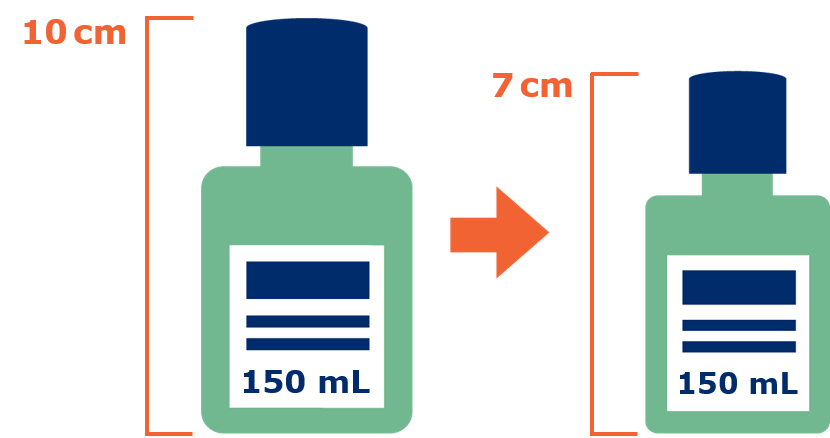New GTIN for:

Item

Existing higher-level packaging
A change to a physical dimension, on any axis, or gross weight over 20%, requires assignment of a new GTIN.
Hierarchy level of GTIN assignment
- The GTIN change occurs at the retail consumer trade item or base unit level.
- A unique GTIN is assigned at every existing level of packaging hierarchy above the retail consumer trade item/base unit level.
Example business scenarios that require GTIN change
-
The gross weight of a product increases by 50% from 0.34 kg (0.75 lb) to 0.68 kg (1.5 lb) due to a change in the packaging material from plastic to glass.

- The height of a box of laundry detergent changes by 40% from 7.6 cm (3 in) to 10.64 cm (4.2 in).
- A case or pallet orientation (there is no change to the item inside) may be changed such that one or more axis changes.
Additional information
- This part of the standard only applies to changes to the dimensions and the gross weight of a product. Any change to declared net content is governed by the rule on “Declared Net Content”.
- Frequent cumulative changes, without changing the GTIN, in avoidance of the 20% rule is an unacceptable practice. Trading partners should be notified about all dimensional changes. Cumulative changes might cause problems for trading partners and may obstruct the flow through of product.
- See the GS1 Package and Product Measurement Standard for a consistent, repeatable process to determine measurements for a given product package
- Local, national or regional regulations may require more frequent GTIN changes. Such regulations have precedence over the rules provided within the GTIN Management Standard.









